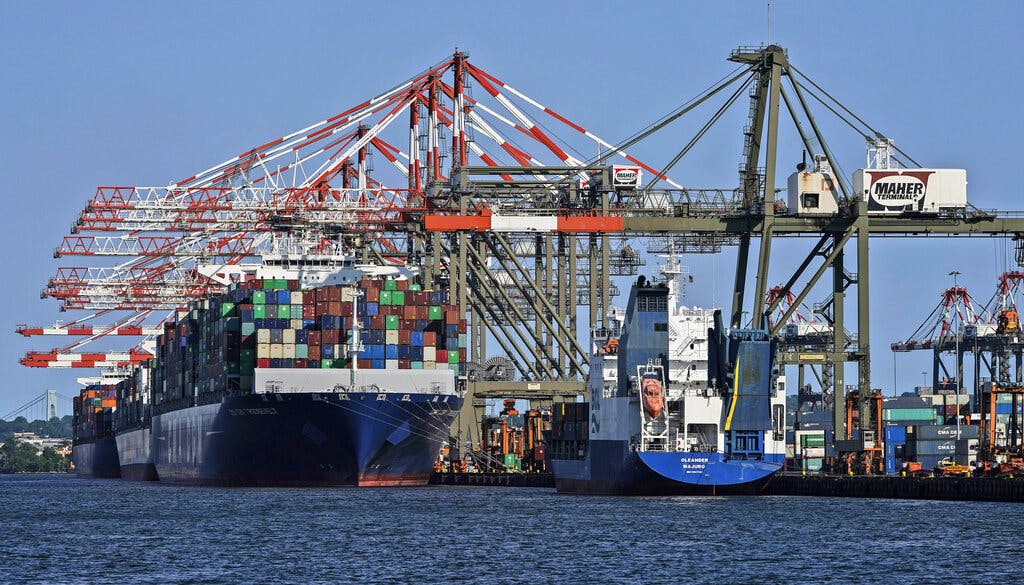Spike in Carjackings Sparks Task Forces Across America
Auto thieves are targeting occupied cars instead of parked ones because resellers now need key fobs to unload stolen vehicles with electronic ignitions.

Local and state police forces around the country are setting up task forces to combat a nationwide spike in carjackings that many law enforcement officials believe is the work of international crime rings.
Crime statistics across the country show a large uptick in carjackings — auto thefts while drivers are in or next to their vehicles in 2022. Philadelphia reported more than 1,000 carjackings in the first nine months of the year, an 18 percent increase over all of 2021. Montgomery County, Maryland, near Washington, D.C., reported a 19 percent increase in carjackings over the previous year during the first eight months.
New Jersey also saw a 19 percent increase during that time. Those spikes are on top of a 64 percent rise in carjackings nationwide in 2021 versus 2020.
“It feels like every other day we read about yet another carjacking or stolen car literally taken out of someone’s driveway as they slept or, brazenly, in broad daylight,” Representative John Gottheimer, a Democrat of New Jersey, said. “Within minutes, these cars are chopped up for parts, or they’re brought here where they are immediately put onto ships.”
“But, frankly, this is not just a local crime issue — it’s a national and international issue with multi-state and global crime rings,” Mr. Gottheimer said.
Thousands of vehicles are being illegally exported to overseas destinations, including West Africa and the Dominican Republic, from the Port of Newark, New Jersey, according to Mr. Gottheimer, who cited U.S. Customs and Border Patrol statistics. Many of those vehicles are used to transport narcotics as well, the Department of Homeland Security secretary, Alejandro Mayorkas, told a House Homeland Security Committee hearing last month.
In July, Senator Grassley of Iowa, the ranking minority member on the Senate Judiciary Committee, accused the Department of Justice of ignoring the uptick in violent crimes such as carjackings, saying it was choosing task forces based on political affiliations not areas of need.
“If we can only reduce the homicide numbers to where they were before the ‘defund the police’ movement, we could save as many as 6,000 lives per year. Yet there is no murder surge task force. No task force for combating the 20-year high in police killings. No carjacking task force,” Mr. Grassley said.
Mr. Gottheimer has asked the Department of Homeland Security to create a National Auto Theft Task Force. As he awaits a response, officials around the nation are setting up their own units to combat the crime. State and local police departments are working across jurisdictions in cities ranging from New York and Chicago to Philadelphia, New Orleans, and Washington, D.C.
Several are receiving federal assistance. The Border Patrol’s Air and Marine Operations is working with Chicago Police’s Vehicular Hijacking Task Force. The Louisville, Kentucky, police department set up a task force with the FBI and the Bureau of Alcohol, Tobacco, & Firearms in 2020. Baltimore Police announced this month that it had launched a task force with the FBI to combat carjackings.
Last week, the Orangeburg Department of Public Safety in South Carolina announced that a local and state task force had issued 21 warrants for carjacking suspects. The arrests have national and international implications.
There is “evidence to indicate that there was a car theft ring operating out of the Charleston area where vehicles were being placed in containers and shipped out of the country,” Chief Charles Austin said.
The pattern of the new wave is eerily familiar to tactics documented a decade ago, when Immigration and Customs Enforcement officials uncovered a straightforward conspiracy — street thieves hired to steal cars and take them to “cooling spots,” where GPS devices would be stripped to avoid detection.
Once a few cars were brought together, they would be towed to a location and loaded into a shipping container. A tractor trailer would then transport the container to ports in Newark, Baltimore, or Norfolk, Virginia, for export by international shipping companies to destinations in West Africa, including Nigeria and Ghana.
The end game is similar today, but the tactics now involve thieves targeting occupied cars instead of mostly parked ones. Why the need for carjacking? Resellers need key fobs to unload stolen vehicles with electronic ignitions.

